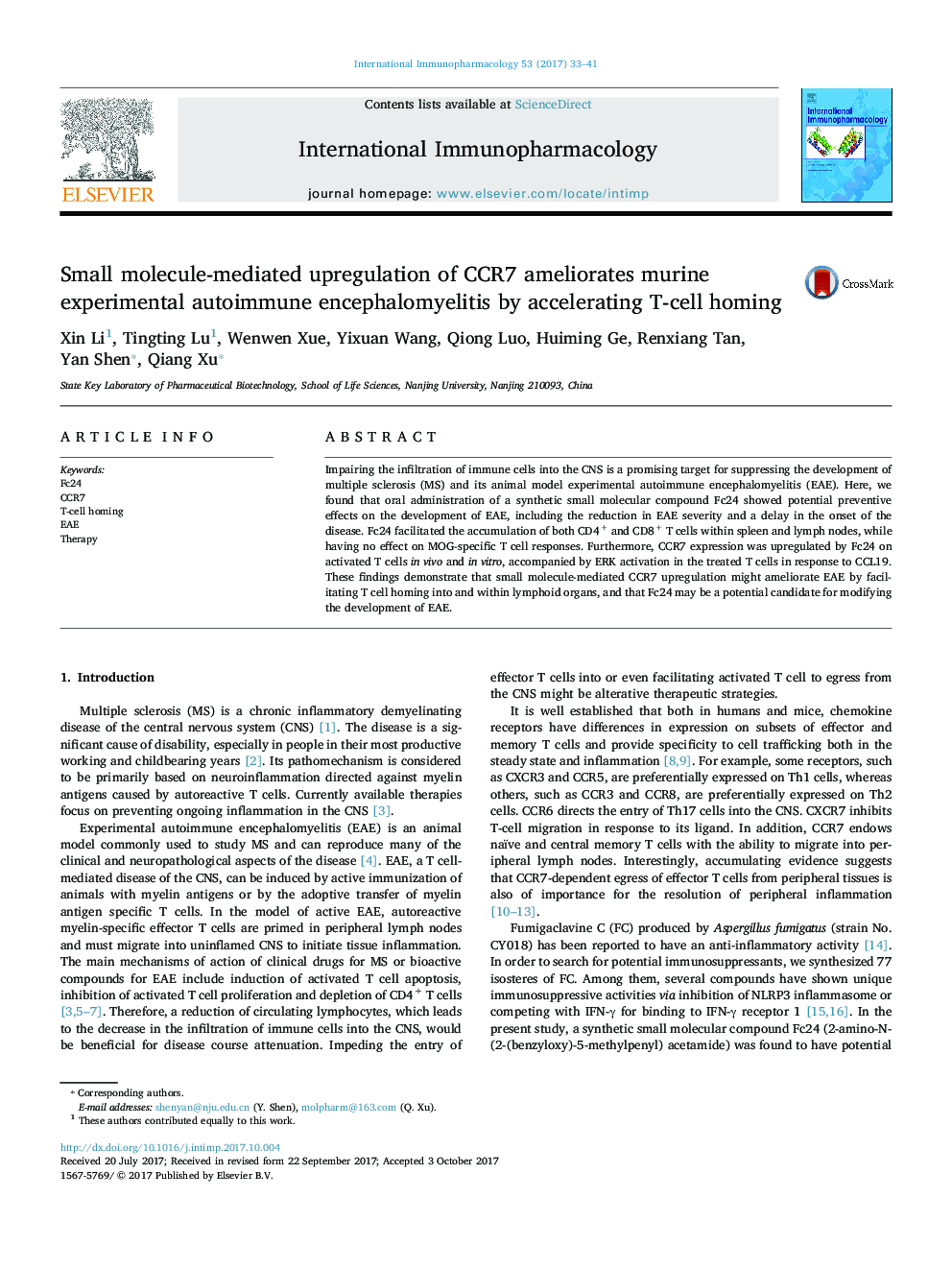| Article ID | Journal | Published Year | Pages | File Type |
|---|---|---|---|---|
| 5555196 | International Immunopharmacology | 2017 | 9 Pages |
â¢Oral administration of Fc24 prevented the development of EAE in mice.â¢Fc24 facilitated T cell accumulation within spleen and lymph nodes.â¢Fc24 had no effect on MOG-specific T cell responses.â¢CCR7 expression was upregulated by Fc24 on activated T cells.
Impairing the infiltration of immune cells into the CNS is a promising target for suppressing the development of multiple sclerosis (MS) and its animal model experimental autoimmune encephalomyelitis (EAE). Here, we found that oral administration of a synthetic small molecular compound Fc24 showed potential preventive effects on the development of EAE, including the reduction in EAE severity and a delay in the onset of the disease. Fc24 facilitated the accumulation of both CD4+ and CD8+ T cells within spleen and lymph nodes, while having no effect on MOG-specific T cell responses. Furthermore, CCR7 expression was upregulated by Fc24 on activated T cells in vivo and in vitro, accompanied by ERK activation in the treated T cells in response to CCL19. These findings demonstrate that small molecule-mediated CCR7 upregulation might ameliorate EAE by facilitating T cell homing into and within lymphoid organs, and that Fc24 may be a potential candidate for modifying the development of EAE.
